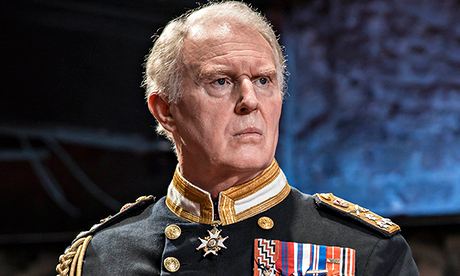You have no items in your cart. Want to get some nice things?
Go shopping
By any standards, the last month has been a pretty extraordinary one for British theatre. At the end of last year, I wrote that “I’ve a feeling we’ll look back on 2013 as the year Things Started To Happen”. Granted, I had very little evidence to base this on other than the general idea that there had been a shift in mood at some point throughout the year, that theatre-makers were beginning to try new things in conventional, more established spaces, but it rang true for me all the same. Now, thanks to the slew of invigorating, challenging openings in the last month, it seems like I may just have been onto something.
The first show I saw last month was Carrie Cracknell’s production of Simon Stephens’ Birdland at the Royal Court. Ostensibly, it’s a play about a rock star – Paul – and the trappings of fame, but to my mind it’s far more complex and nuanced than that. Coupled with Ian MacNeil’s design (which surrounds a wooden stage in black, oily liquid), this becomes a play about money and the economics of “worth”. In one early scene, for example, we see Andrew Scott’s protagonist musing on how the exponential rise in the size of his audience must mean an equitable rise in the quality of his output. What’s most impressive about Birdland, however, is the extent to which this production plays with the text, interrogating it in by using a bold, theatrical aesthetic which thrives on metaphor and never once tries to be literal. To have this kind of treatment given to any play is exciting; to have it applied to a premiere at the Royal Court is nothing short of miraculous.
It’s less easy to see the directorial “strings”, as it were, in Rupert Goold’s take on Mike Bartlett’s “future history” Charles III, but they’re still definitely present. As others have pointed out, the opening sequences of both halves feel like parodies of “an RSC history play” and “Rupert Goold does a history play” respectively, engaging us with the way in which this text represents and subverts notions of the past, present and future. Goold, then, takes Bartlett’s idea of using Shakespearean tropes and conventions (the play is, brilliantly, written in blank verse) and runs with it, pushing the script – already inspired – to even higher levels.
Later in the same week, Ivo van Hove’s production of Arthur Miller’s classic play A View From The Bridge opened at the Young Vic. Except for a few of Alfieri’s narrative speeches, the entirety of the action in this extraordinary production happens within the confines of a white oblong, with characters dressed in neutral colours with only the odd smattering of bright hues. Again, this isn’t a director “imposing” ideas, but his presence is still very clearly felt and he makes additions and changes to the script (including, at one point, the speaking of stage directions) which make total sense in the context of this production. It’s a perfect mix of “serving the text” and “presenting alternative ideas” which synthesises in a breath-taking climax.
The show which surprised me most this month, however, was James Graham’s Privacy at the Donmar Warehouse. Going by the press material alone, it sounds fairly conventional in its creation (i.e. playwright writes text, then hands it to director who makes a few notes but ultimately “does” the thing they’ve been given). There’s something about the content and presentation of Privacy, however, which makes it feel far more like a collaboration between Graham and the director, Josie Rourke. Granted, naming characters The Writer and The Director may well be pulling the wool over our eyes to create an illusion of reality, but even then it feels like the outcome of discussions and arguments between a group of people. It takes the traditional, text-based methods of theatre-making and mixes them with more collaborative modes, all whilst asking important questions about notions of privacy in the 21st century in a genuinely unique way. And though there may be some disparity between these ideas and a lot of the Donmar’s core audience, it still feels like a leap in the right direction.
This, of course, is to say nothing of the exciting work being produced in smaller spaces like The Gate and The Shed, or the sterling work currently being made by touring companies Headlong and Paines Plough, whose productions of Spring Awakening and An Intervention respectively are both astonishing. Indeed, it is arguably these companies who are doing the more important work, taking shows to smaller towns and cities in order to share the invention seen in the capital with those who may not be able to access it as easily.
This is all, of course, relatively arbitrary; there aren’t going to be many who see all these extraordinary shows in the space of a month, and trying and correlate this sudden burst of quality with other shifts in the theatrical landscape is, perhaps, misguided. But whatever way you look at it, there’s no denying that these are all necessary pieces of work which try in some way – no matter how small – to challenge ideas and forms which have come before them. It’s too early yet to call how the rest of the year is going to pan out, but if the next seven months are even a fraction as good as the last one, we’re in for a treat.
Birdland, Privacy and King Charles III all finish May 31. A View From The Bridge finishes on June 7.

About Dan Hutton
Dan is a freelance critic and theatre-maker. He won the Howard Hobson Award for Theatre Criticism at NSDF in 2010, 2011 and 2013, and in 2013 was the runner-up for the Edinburgh Fringe Allen Wright Award for Arts Journalism. Dan is also a director and co-runs Barrel Organ Theatre.




